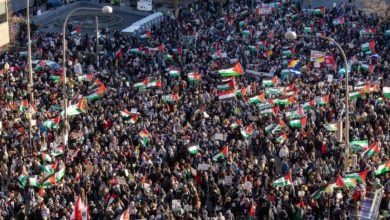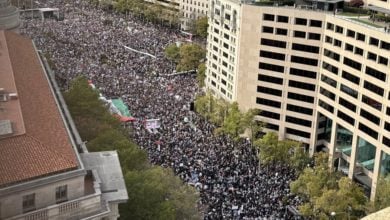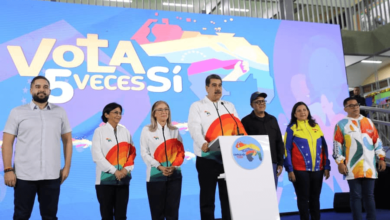Venezuela secured a significant legal win in a UK court today as the revolutionary government led by President Nicolás Maduro continues its battle with coup leader Juan Guaidó over control of the country’s assets abroad. A British appeals court overturned a previous decision and ruled today that it was not conclusive that Guaidó’s phony administration had the legal right to the Venezuelan government’s gold reserves that are held in the Bank of England.
Thirty-one tons of gold worth approximately $1.2 billion has been held hostage since early last year as the legal battle plays out. At the heart of the dispute is Venezuela’s sovereignty itself. Do the people of Venezuela, who elected Nicolás Maduro to a six-year term in 2018, choose their president? Or can the government of the UK decide who the Venezuelan president is, even if it’s someone like Juan Guaidó who had never even run for president before and was in fact unknown to the vast majority of the population before his self-proclamation?
The right wing government of then Prime Minister Theresa May was one of the first countries to “recognize” Guaidó as the legitimate president of Venezuela after his coup attempt began in January 2019. In addition to being a junior partner to the U.S.-led regime change push against the country, the UK has a long history of direct participation in the colonial oppression of Venezuela — most notably for seizing the resource-rich Esequiba region and affixing it to its then-colony Guyana through an “arbitration” process at the end of the 1800s.
The so-called government of Juan Guaidó has absolutely no authority inside of Venezuela, and his cronies have been caught multiple times embezzling funds they claimed were being used for the good of the Venezuelan people. The Venezuelan government has said that if they were to regain control of their gold reserves they would sell it and use the proceeds to purchase medical equipment via the United Nations Development Program.
The UK government’s attempts to grant Guaidó control of the gold is clearly aimed at intensifying the suffering of the Venezuelan people as part of the multi-faceted economic war being waged on the country. Ana Felicien, an activist with the group People to People Plan who works on food sovereignty at the Venezuelan Institute of Scientific Research, told Liberation News that as a result of the sanctions targeting Venezuela, “daily life has become increasingly complex and the actions that a few years ago were almost routine, today are a great feat: having gas and running water for cooking as well as buying basic foods”
Felicien explained how the sanctions function to choke the most basic elements of the Venezuelan economy: “Each time a new sanction is imposed against Venezuela, the possibility of feeding ourselves becomes more distant from our tables and stomachs. Food production depends on a series of inputs and materials that are imported in addition to basic services (electricity and fuel for example), and all purchases legitimately made by Venezuela are blocked by these sanctions: purchases of seeds, machinery, tools, spare parts, and even additives for gasoline production.”
Guaidó’s claims to legitimacy unraveling
The UK court decision is the latest setback for Guaidó as his farcical claim to be the leader of Venezuela continues to come apart. Guaidó’s legal case that he has a right to claim the country’s presidency stemmed from his position as President of the country’s National Assembly. Under the Venezuelan constitution, the head of the National Assembly becomes the head of state in the event that the president is “absent” (in the case of an incapacitating illness, for instance).
This contention was absurd from the outset, because no such absence existed and regardless the decisions of the National Assembly were null and void because the body was being held in contempt of the Supreme Court. But at the beginning of the year, Guaidó failed to secure reelection as assembly head. Instead, another faction of the opposition led by Luis Parra secured majority support among the body’s deputies.
Legislative elections are scheduled to take place in December, and Guaidó is engaged in a desperate and failing effort to organize a boycott. An increasing number of opposition figures and parties have announced their intention to participate in the vote, which the government hopes will end the conflict between different institutions of the Venezuelan state. To keep Guaidó’s fantasy alive, the U.S. government has even moved to sanction opposition leaders who have agreed to participate in the election.
Despite the legal progress made in the UK today, ultimate control over the gold reserves is still to be determined. And the Trump administration constantly rolls out new sanctions targeting the Venezuelan economy and political leaders. As the leaders of Venezuela’s revolutionary process have always maintained, international solidarity will be key to defending the country from disastrous U.S.-backed regime change.





